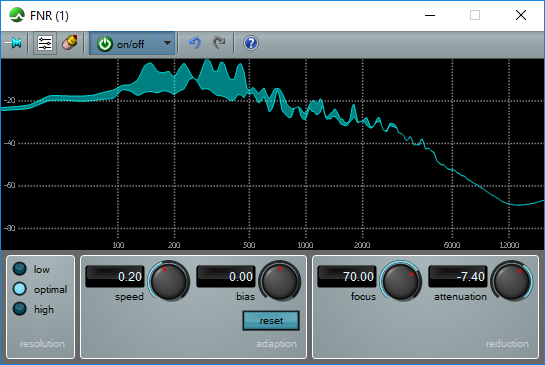FNR

When cleaning audio signals, one scenario proves to be stubbornly problematic and often impossible to solve. This is the problem of revealing and increasing the intelligibility of voices recorded in noisy and rapidly changing environments such as moving vehicles, crowded cafés, and other public spaces. Audio engineers encounter this time and again and, while the venues and scenarios may vary greatly, they all share a common difficulty. How do you reveal a wanted speaker when the signal to noise ratio is very poor or if the unwanted audio is other human voices?
The answer is FNR, an automated noise reduction system for speech recordings suffering from poor signal/noise ratios, and it's capable of performance that would have seemed impossible just a few years ago. Because it's adaptive, it reacts - and reacts quickly - to changes in the background noise, and is capable of revealing much more of the wanted signal without having anything like as much effect on the wanted voices as other forensic audio filtering systems. This also makes it of great value in post and broadcast when there's simply no other way to reveal the wanted speech in interviews and news reports recorded in challenging environments.
FNR is extremely quick and simple to use. It requires no noise fingerprint and constantly adapts to the noise present in the input signal. Its controls determine the nature of the noise removal by allowing the user to adjust the spectral resolution of the process as well as factors relating to its adaption and noise reduction.